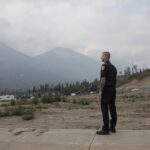The heavy-handed police response to last week’s lockdown at Mount Saint Vincent University in Halifax has sparked intense debate among students, faculty, and security experts alike. What began as a weapons call—later determined to be unfounded—has evolved into a larger conversation about proportionality in emergency responses on Canadian campuses.
On that tense Thursday afternoon, students found themselves surrounded by tactical teams wielding assault rifles, with some reporting officers pointing weapons directly at them as they evacuated buildings. The scene left many visibly shaken and questioning whether such force was necessary.
“I understand the need for caution, but having rifles pointed at confused students seems excessive,” said Emma Chen, a third-year Psychology student who was among those evacuated. “We were treated like suspects rather than people needing protection.”
Halifax Regional Police defended their approach, stating that weapons calls demand their highest response level to ensure public safety. “Our protocols for potential active threat situations require us to deploy appropriate resources until we can confirm there is no danger,” explained Deputy Chief Jason Popik in a statement to CO24 News.
However, security analyst Michael Gardiner suggests the response reflects a concerning trend. “We’re seeing increasingly militarized responses to campus incidents across Canada,” Gardiner told me during an interview at his downtown Halifax office. “While preparedness is crucial, there needs to be a balance between readiness and creating additional trauma.”
The university administration has remained largely silent on the police tactics, focusing instead on praising the swift emergency response. Yet faculty members have been more vocal, with several expressing concern about the psychological impact on their students.
Dr. Leanne Morris, who teaches in MSVU’s Education department, noted that several of her students reported anxiety attacks following the incident. “When we talk about campus safety, we must consider both physical and psychological well-being,” she said. “Many students, particularly international students or those from communities with historical reasons to fear police, experienced this differently.”
This incident comes amid growing national discussion about campus security protocols across Canadian universities, with institutions in Toronto and Vancouver reviewing their own emergency response procedures in recent months.
Student union president Derek Williams has called for a formal review. “We need transparency about what protocols were followed and whether alternatives exist,” Williams stated. “Students deserve to know they won’t face weapons for simply being on campus during a misunderstanding.”
As the university community processes this event, a fundamental question emerges: In our efforts to protect campus communities from potential threats, at what point does the security response itself become a source of harm rather than reassurance?

























